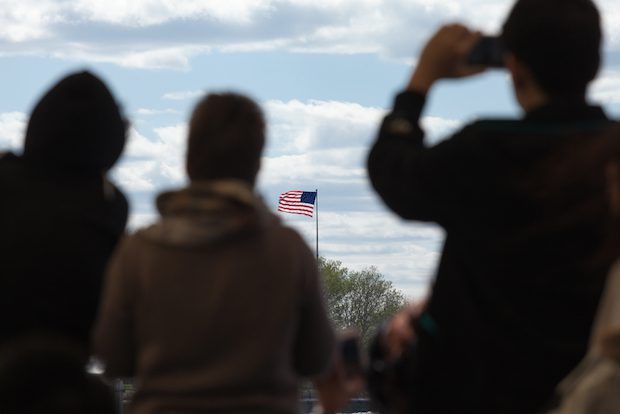Does the U.S. Need to Have a Mission?

David Brooks surveys the political scene and concludes, as he always does, that we need more “leadership” for the sake of national greatness:
Some leader has to be able to digest the lessons of the last 15 years and offer a revised charismatic and persuasive sense of America’s historic mission. This mission, both nationalist and universal, would be less individualistic than the gospel of the 1990s, and more realistic about depravity and the way barbarism can spread. It would offer a goal more profound than material comfort.
If some leader were able to “digest the lessons of the last 15 years,” why would he be inclined to promote the “historic mission” that Brooks has in mind here? Why wouldn’t one of the lessons to be learned from the last 15 years be that the U.S. shouldn’t keep trying to fill the role that it has tried to fill in previous decades? If Western establishments have “lost faith in their own capacities of understanding and action,” perhaps that is because they have been responsible for a series of a major, costly failures that have discredited them.
If the U.S. is “no longer willing to occupy the commanding heights and oversee global order,” as Brooks puts it, perhaps this is because that task is impossible or so costly as to not be worth it. Perhaps Americans are realizing that we don’t have to do this. We are definitely realizing that we often don’t know what we’re doing in any case. Suppose instead that the U.S. doesn’t have or need to have a “mission” at all, but could instead aspire to become a normal, prosperous country without any of the delusional self-importance that comes with having a “mission.” We would not presume to be upholders of a “world order,” and consequently wouldn’t consider every crisis or conflict around the world as our problem to “solve.” We might then admit that our attempted “solutions” often make matters worse than they were before. We might even show some of that epistemological humility Brooks mentions from time to time and acknowledge that we don’t understand the rest of the world well enough to fill the role he wants the U.S. to play.